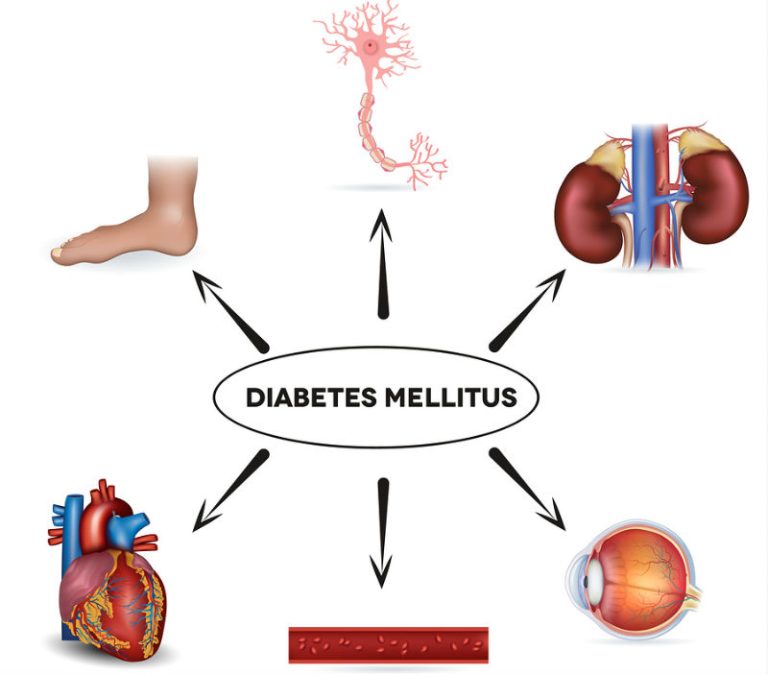Bariatric surgery, including gastric sleeve and gastric bypass surgery, is only part of your weight loss journey. A major part of your new life post-surgery is re-learning how to eat. You’ll need to avoid sugar, as it may undo the effects of your surgery or, if you’ve had a gastric bypass surgery, it may cause “dumping syndrome.” When you consume too much sugar after your gastric bypass surgery, your stomach can’t hold it and “dumps” it into your small intestine too quickly. Dumping syndrome comes with a list of unpleasant gastrointestinal symptoms, including nausea, vomiting, cramps, bloating, and diarrhea.
Fortunately, not all sugars are the same, and not all sugars cause dumping syndrome. Learn which sugars and sugar substitutes are safe after bariatric surgery – and which should be avoided.
What are Natural Sugars and Where are They Found?
As the name suggests, natural sugars occur naturally in unprocessed foods. Fruit, for example, contains a natural sugar called fructose. The lactose in milk is also a natural sugar.
Fructose and lactose are natural and even healthy. Because they’re digested slower than refined sugars (see below), they help the body maintain a healthy metabolism. Natural sugars are found in foods that contain additional nutrients we need, like vitamins, calcium, and fiber. These foods are good for you and are safe after surgery.
What are Refined Sugars?
In this context, “refined” means “processed.” Refined sugar starts out as a natural plant (sugar cane, sugar beet, corn, or agave), but that plant has the sugar squeezed out of it, and it then gets processed until it crystallizes.
This sugar adds sweetness and calories to food, but nothing else. There is nothing of nutritional value in refined sugars. Your body processes refined sugar very quickly, giving you that sugar rush feeling and subsequent crash.
In addition to fructose, refined sugar contains glucose. Too much glucose in your blood can cause major kidney or eye diseases, heart attacks, or stroke. Refined sugar goes by many other names, so check your food labels.
What are Added Sugars?
When processed foods are made with sugars beyond what naturally occurs, that’s added sugar. Refined sugar is almost always added to and found in processed foods because it makes that food sweeter and more appealing.
If you look at the labels on your food, you’ll see a category called “Added Sugars” that tells you exactly how many ounces or grams of refined sugar has been added on top of the natural sugars. The amounts may surprise you. Even foods you think might be “safe” may contain added refined sugars, so it’s important to read every label carefully.
Keep in mind that food and beverage claims aren’t created equal. There is a difference between “sugar-free,” “reduced sugar,” and “no added sugar.” The more you know, the easier it will be when you go to the supermarket.
Natural Sugars After Bariatric Surgery
Gastric bypass surgery patients who get sick (dumping syndrome) from added sugars generally tolerate naturally-occurring sugars. These foods also supply important nutrients and, in the right balance, are part of a healthy diet. And since refined, added sugars contribute nothing but empty calories, it’s smart to avoid them as much as possible after your bariatric surgery.
Barix Clinics are here to help all our patients learn how to eat healthy with delicious recipes full of healthy nutrients.
What are Sugar Substitutes?
Sugar substitutes, or artificial sweeteners, provide the same amount of sweetness (or more!) in your food without the calories or dumping syndrome caused by added refined sugar. Sugar substitutes come in liquid or granular form and can be added to your coffee, used in baking, or anywhere else you’d normally add sugar. They’re also used in some processed foods and drinks instead of refined sugar.
Sugar substitutes come in 3 forms:
- Chemicals made in a lab
- Saccharine
- Aspartame
- Sugar alcohols (created in labs from real sugar)
- Sorbitol
- Xylitol
- Erythritol
- Plant-based calorie-free sugars (aka “novel sweeteners”)
- Monk fruit
- Stevia
Sugar substitutes could be a harmless way to enjoy sweets. They won’t fill you up with the empty calories you’d get from refined added sugars.
Are Sugar Substitutes Dangerous?
Some studies have made claims that sugar substitutes can cause weight gain and shifts in your gut’s natural microbes. However, these studies are mostly inconclusive. According to the Mayo Clinic: “In general, artificial sweeteners are safe in limited amounts for healthy people, including pregnant people. Please check with your doctor to make sure sugar substitutes are safe for you. But limit or cut out sugar substitutes:
- If you’re living with a rare genetic disease called phenylketonuria. Foods and drinks with aspartame can lead to serious health problems.
- If you have a bowel disease. Using sugar substitutes might make your symptoms flare up.”
As with anything else, talk to your doctor if you have concerns about sugar substitutes.
Post-bariatric surgery, most sugar substitutes are much safer than added, refined sugar. However, sugar alcohols cannot be absorbed by the body and can lead to bloating, gas, cramping, and/or diarrhea. Try to avoid sugar alcohols after bariatric surgery.
The Best Sweeteners After Gastric Sleeve or Bypass Surgery
Having bariatric surgery means you’ve committed to a healthier lifestyle, including an improved, healthier diet. This dietary change alone will have a positive impact on your health. But what about the use of sugar substitutes? Can you still enjoy cake on your birthday? Pumpkin pie at Thanksgiving? Candy at the movies?
Some sugar substitutes are known to cause unpleasant side effects, such as gas, bloating, or diarrhea. Whether you suffer from these side effects or not may be a matter of trial and error, as well as how much of a particular sugar substitute you consume. Sugar substitutes made from sugar alcohol (which mostly end in “-ol”) are the most likely to cause gastrointestinal discomfort and should be avoided after gastric sleeve or other bariatric surgery.
The following sugar substitutes are considered harmless after gastric sleeve, gastric bypass, or other bariatric surgery. You should still consult with your bariatric surgeon before consuming any sugar substitutes.
Stevia
Plant-based and zero calories, Stevia is a popular choice for sugar substitutes. Some people complain that Stevia has a bitter aftertaste, but that’s entirely subjective. Many diet sodas today are sweetened with Stevia. It comes in both granulated and liquid form, making it popular in coffee and baking. While delicious, Stevia may cause bloating in some people.
Monk Fruit
Unlike its Stevia cousin, the general consensus on monk fruit is that it has no aftertaste, making this a very popular choice when it comes to sugar substitutes. It bakes well and provides a cup-for-cup substitute for refined white sugar. Monk fruit has no known side effects.
Saccharin
This artificial sweetener got a bad rap in the 70s due to a study linking it to bladder cancer in male rats. However, studies since then have shown that it does not, in fact, cause cancer in humans. You can keep putting Sweet n’ Low in your coffee.
Aspartame
Next to those pink packets of Sweet n’ Low are the blue packets of Equal, which are made from aspartame. Aspartame is a combination of amino acids. It’s been thoroughly studied and tested, and is guaranteed safe after more than 100 studies. Some people report headaches or dizziness, but links to aspartame are inconclusive.
Sucralose
Rounding out the list of common sugar substitutes that are safe after bariatric surgery is sucralose, known popularly as Splenda. This sweetener is made from sugar and is often said to have the most similar taste to white sugar, without an aftertaste.
Acesulfame Potassium
This sugar substitute, also known as acesulfame k or ace-k, is a chemical sweetener. Due to its tolerance for high temperatures it’s a popular sugar substitute in baking. After more than 90 studies, it’s been proven safe to eat
How Barix Clinics Can Help You On Your Weight Loss Journey
We know that when it comes to losing weight, you’ve probably tried everything. Now it’s time to consider bariatric surgery. Not only will we provide you with information, options, and guidance, we’ll be with you after your surgery, as well. That includes a team of nutritionists to help you learn how to eat to accommodate your new body.
Don’t wait another minute to start your new, healthier life. Call us at 734-547-4700 or contact us online to speak with a caring expert about your surgical weight loss options.




